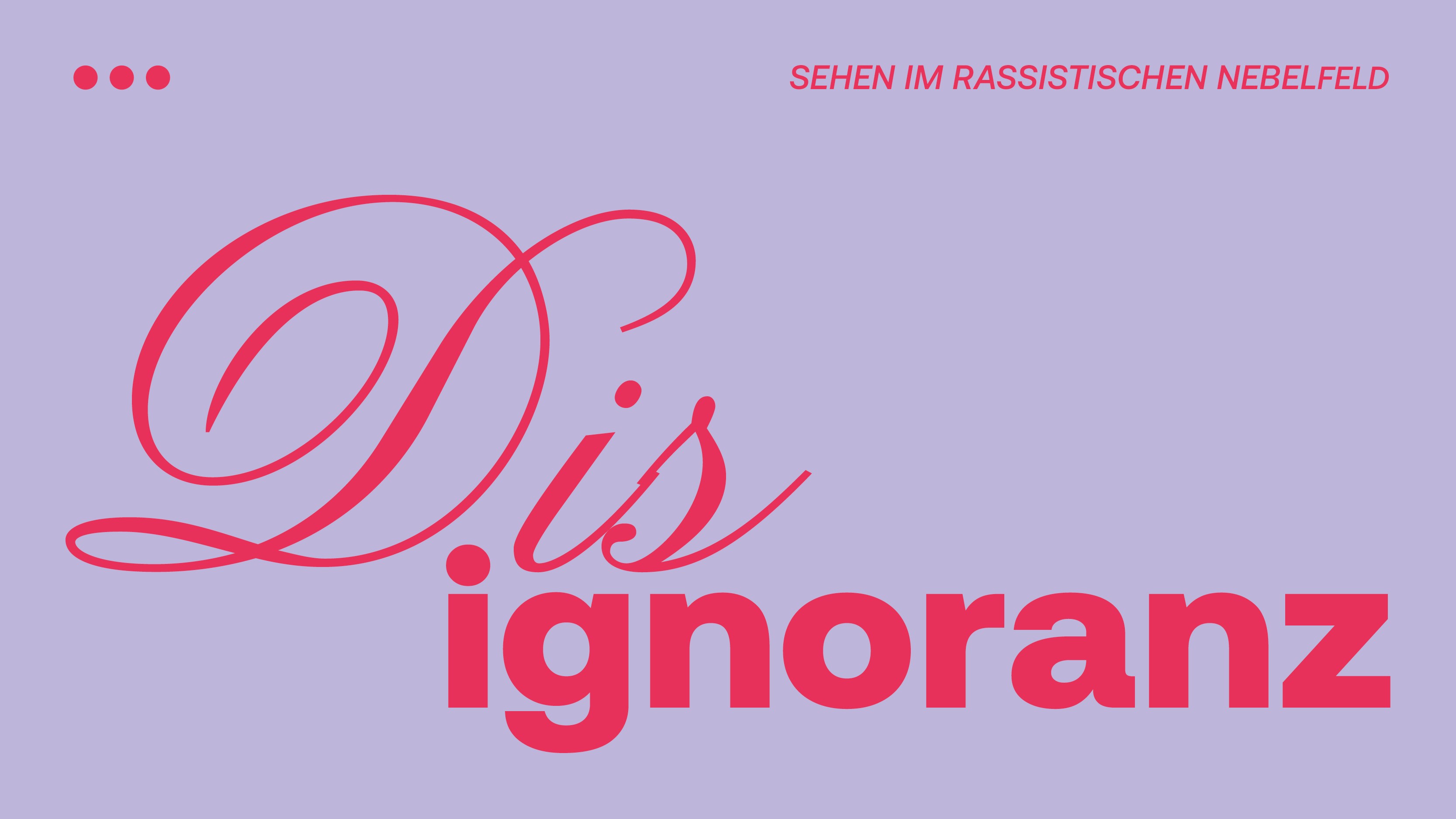The artistic-philosophical research project “DisIgnoranz - Sehen im rassistischen Nebelfeld” (DisIgnoranz - Seeing in the racist fog) stands for an examination of aesthetics and image politics in the context of right-wing extremist, antisemitic and racist violence. The focus is on the gaps and voids in the collective memory of such acts of violence, especially in the urban area of Munich. Which right-wing extremist, racist and antisemitic acts of violence are remembered, how and by whom - and what forms of expression are chosen? What do these forms of expression convey and what do they leave out? And what is considered worthy of remembrance for whom and why?
The starting point of the project is the assumption that knowledge about the normalizing conditions of racist and antisemitic violence is available in different ways. Depending on what experiences people have in their everyday lives, they will have different things to say about the social anchoring of such violence. This is why the project is also about learning from migrant and post-migrant perspectives - from the situated knowledge of those affected. What forms of expression do they develop? And what does it mean for people who are not affected by the normalization of racist and antisemitic violence to engage with these forms of expression and possibly work with them? Conversely, what dangers are concealed behind simple patterns of differentiation between those affected and those not affected? Ultimately, the project is also about developing an understanding of memory as a process that remains open and contentious and can do justice to the simultaneity of different vulnerabilities in social space.
These questions and challenges are addressed in the project through philosophical analysis on the one hand and artistic research on the other. By working together with students at the academy, the aim is to sensitize them to the complex conditions of right-wing extremist, racist and antisemitic violence and its normalization. In this way, the project also contributes to the political education of students, who can later transfer this knowledge to educational work (schools, adult education, etc.).
Various events in the form of lectures, workshops, joint exhibition visits, seminars and city tours will take place over the course of the project from the beginning of 2024 to the end of 2026. Among others, the artists Cana Bilir-Meier and Natascha Sadr-Haghighian have been guests so far to support the work on the project. In close cooperation with the NS Documentation Center, a presentation of the project results is planned to be shown there in early 2026. Finally, a larger artistic-theoretical publication is being planned.
Under the title “Aesthetic Interventions in a Racist Normality” („Ästhetische Interventionen in eine rassistische Normalität“), “DisIgnoranz” is part of the Research Network for Contemporary Analysis, Remembrance Practice and Counter-Strategies to Right-Wing Extremism in Bavaria (Forschungsverbunds für Gegenwartsanalysen, Erinnerungspraxis und Gegenstrategien zum Rechtsextremismus in Bayern (ForGeRex),), which is funded by the Bavarian State Ministry of Science and the Arts and comprises nine sub-projects at eleven Bavarian universities and colleges as well as non-university research institutions.
The “ForGeRex” research network investigates right-wing extremism in Bavaria. Using an interdisciplinary approach, the specific manifestations of the phenomenon, its effects on everyday social life and strategies against right-wing extremism are examined. Specifically, the focus is on current developments, actors, structures and discourses, but historical perspectives are also taken into account.
The research network was initiated by Prof. Dr. Martina Ortner and Prof. Dr. Clarissa Rudolph from the Faculty of Applied Social and Health Sciences at OTH Regensburg.

